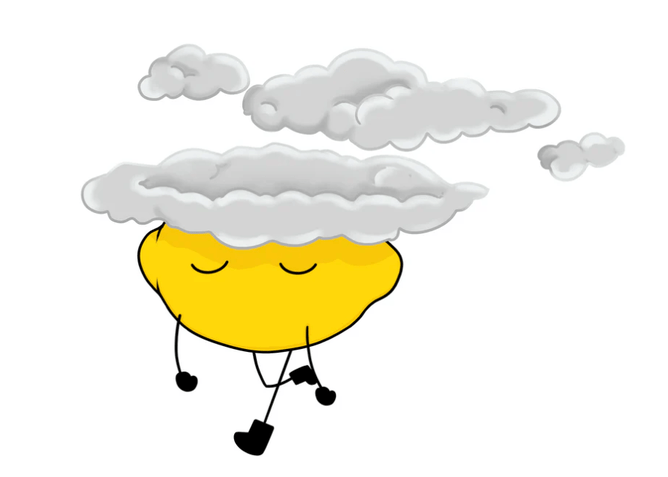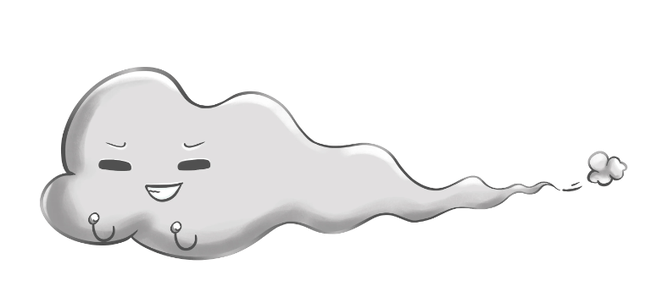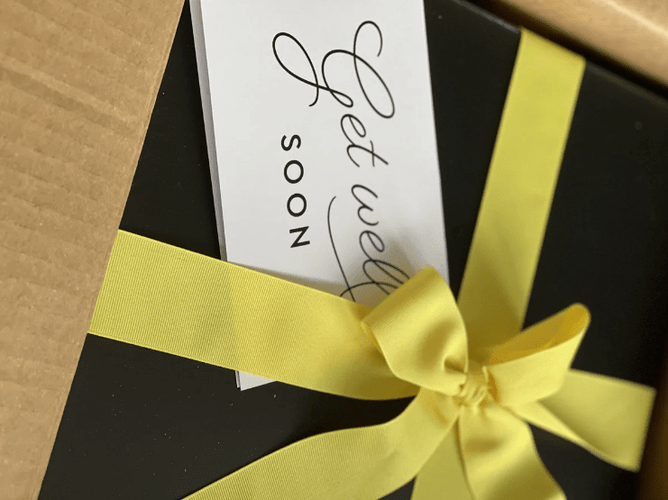I’ve got long COVID. I think. Not sure. Pretty sure I’ve got it. I have some of the symptoms, not all of them, but certainly enough of them to suggest that I’ve got it.
You see, I’ve been feeling odd since I tested positive and that was long ago enough to conclude I’ve got long COVID now. Yup, I’m pretty sure I’ve got it. Because if I do then it would explain a lot about how I’m feeling, and if you give something a name, then you can tame it (more of this to follow).
Testing positive was something that I knew would probably happen one day. ‘Get it out the way’ I thought. Nah, I wish I’d never got it. Symptoms are stopping me doing what I want to do. It’s stopping me doing what I always do. I’ve had to take time off, and those of you who know me well know that I never take time off, ever. It’s knocked my confidence a bit. It’s made me doubt myself. It’s made me forget things.
What was I saying… where was I? Ah yes. It’s made me forgetful.
And I feel tired, so very tired. I’m just about keeping my head above water some days. I’m just about keeping the house going, my business going, my kids going. Just. Research tells me that it won’t last. This shall pass allegedly. It better bloody pass. That’s all I’m saying.
I’m not on a treadmill (that would be too tiring) but I am on some sort of hamster wheel, and it just keeps going round and round and round. Rest. That’s what I need to do. That's what I am constantly being told to do. Be good to myself and kind to others.
My mind bounces around, easily distracted, no focus, and then slows to a mindless meander, can't concentrate. I can work well for up to 90 minutes a day, and then the shutters come down and I have to put the ‘just popped out - back in 22hrs’ sign up because I'm knackered. Tomorrow I’ll be able to put another 90 minutes in. But probably no more. This shall pass. It better bloody pass.
I’ve got ‘The Fog’. Some days it's a thick mind fog. I’ve given the fog a name. He’s called Fergus and he’s there all the time (that’s how I know he’s male). Sometimes he’s Fergus lite and sometimes he’s Fergus heavy. I didn’t invite him in – he just lets himself in whenever he wants and it’s always on his terms you know. When I’m better he won’t come around anymore. He won’t be welcome. He’ll be barred. I’ll trespass him. Yup, that’s what I’ll do.
This shall pass. It better bloody pass.
Then there is the fatigue. If Fergus is chilling, Fatima the fatigue (his annoying and more frustrating cousin) stands in for him.
But until the cousins leave, it’s time I lighten the mood here.
And there are actually some positives to be had in all this. Like what?
The Environment
The first positive aspect of COVID-19 is the effect on the environment. Carbon emissions are down globally and with manufacturing and air travel grinding to a halt, the planet has had a chance to rejuvenate.
Connectedness
Another positive outcome is a rejuvenated sense of community and social cohesion. Self-isolation challenges us as social animals who desire relationships, contact and interaction with other humans.
Innovation
COVID-19 is a major market disruptor that has led to unprecedent levels of innovation. Due to the lockdown, so many businesses have had to reinvent themselves with a new 'business as unusual' philosophy.
Corporate Responsibility
Coronavirus is driving a new wave of corporate social responsibility (CSR). The global pandemic has become a litmus test for how seriously companies are taking their CSR and their work with key stakeholders: the community, employees, consumers and the environment.
Reimagined Education
The fifth positive outcome is massive transformation in education. True, most of it was not by choice. With schools closing down all around the world, many teachers are digitalising the classroom, offering online education, educational games and tasks and self-led learning.
Gratitude
Finally, the sixth gift that COVID-19 is giving us is a new sense of appreciation and gratefulness. It has offered us a new perspective on everything we have taken for granted for so long – our freedoms, leisure, connections, work, family and friends. We have never questioned how life as we know it could be suddenly taken away from us.
And people want to help. Not because they FEEL they should but because they actually, really 100% WANT to. I’ve had people falling over each other on my doorstep (no change there then) to drop off care packages or items I or one of the kids need to my whare. I’ve sent them out too of course, but I’ve received them back ten-fold. They’re more than a package – they’re a token of love, appreciation and understanding. They mean a lot. If you’ve had one from me then I hoped it helped. If you sent me one, then thank you, because believe me, it really did help.
And families are talking to each other again. Like really talking. And out of the mouths of babes has come some pretty succinct wisdom. I know a 6yr old who has LOVED the extra time spent with mummy and daddy. I also know a 4yr old who (and I quote) who wants ‘COVID to go to dead town’
You and me both buddy. You and me both.
So, if you are recovering or yet to get it here’s my guide on how to live and work with it. This is what I’ve found out.
Supporting your mental health when you have COVID-19
If you’ve received a positive test result telling you have COVID-19, you’re probably feeling heaps – shock, stress and worry for yourself and others. All of these feelings are normal and expected.
While your physical health and doing what you can to minimise your chances of spreading the virus are important, it’s also important to look after your mental health throughout this time too. Here’s how:
Stick to the facts
It’s easy for our minds to jump to worst-case scenarios, especially when we’ve been exposed to years of scary media stories about COVID. But we know most people with COVID are likely to have a mild to moderate infection and will fully recover at home. Try to stay calm and stick to one or two reliable sources of information.
Stay connected
Although you’re physically isolated, one of the best things you can do for your wellbeing is stay connected with your whānau and friends. Being connected helps us feel safer, less stressed and less anxious. Let the people you care about know you’re isolating with COVID and schedule regular catch ups on the phone or by video call. Depending on how you feel, you could also try playing virtual video games with mates, playing online scrabble or other board games, joining or starting a virtual book club etc….
Take things one day at a time
If you’re feeling okay, it can help to create a routine for your days to give them some structure and make things feel a bit less all over the place and a bit more in control. Little rituals like showering and getting dressed or planning consistent meal times can go a long way. Distraction methods are great too. Immerse yourself in a hobby or activity, like mindful colouring, a puzzle or a good book to distract you from worrying about having COVID.
Top tip: When your feelings are overwhelming, ‘Name it to tame it’
It’s easy to blame ourselves for how we feel or even tell ourselves we should be feeling a different way, but shaming or squashing our feelings makes us feel worse. This is because when we’re feeling lots of emotions, especially anger, fear, tension or anxiety, our brains start pumping out stress hormones and that becomes overwhelming and hard to ignore.
‘Name it to tame it’. Just name what you’re feeling - out loud, by writing it down, or just in your head. This really works! It tells your brain to switch off those stress signals and helps you to start feeling calmer and either a bit more able to focus on solving the problems you can solve, or just able to find other sources of joy.
‘Name it to tame it’ isn’t always easy at first, especially if you’re not used to thinking about your emotions. But it’s a simple trick you can try any time to help you feel a bit better in difficult times.
Try to have some compassion and talk to yourself as you would talk to a loved friend. Life might be difficult right now, and we’ve been living with a lot of anxiety and uncertainty for a long time. However, what you’re feeling is normal and human. Remember: if you’re not feeling great right now, you won’t feel like this forever. Our brains are very good at making us think that what we’re feeling right now is how we will feel in the future, but these challenges will pass. Talking to trusted friends and whānau about how you’re feeling can really help, too.
This shall pass. It better bloody pass.
And when it does, watch out world. That’s all I’m saying.
Take care of yourself and each other. See you next month.




